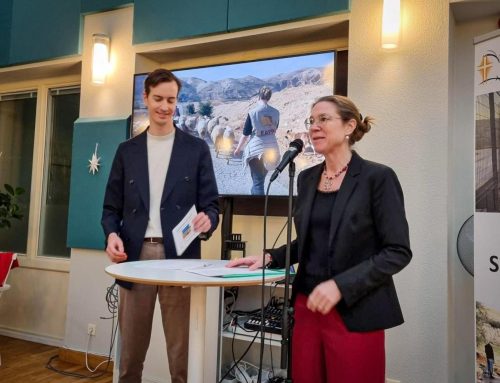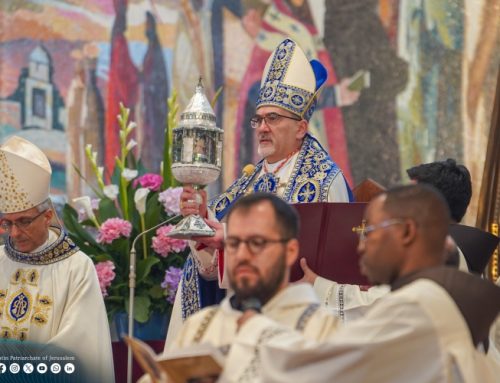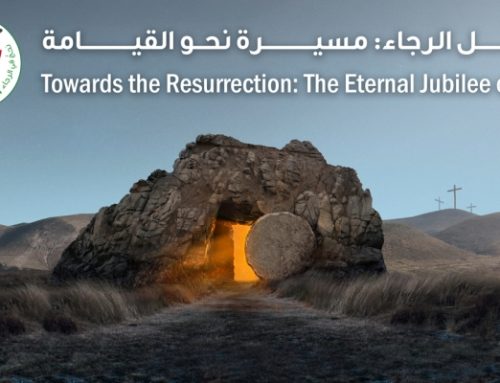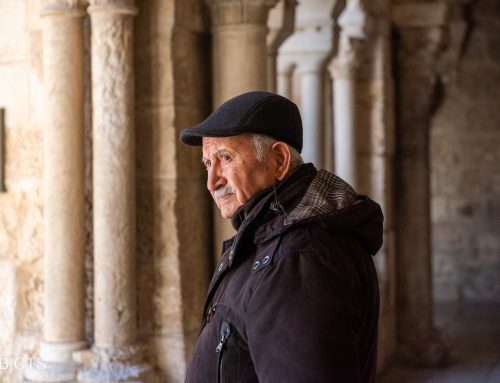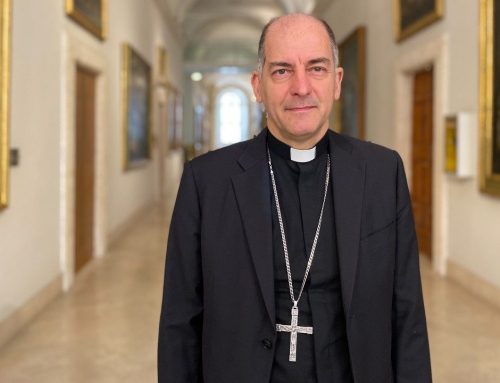The Pope expressed his wish for peace and reconciliation in the Holy Land after news had reached him of Yassar Arafat’s death. “At this hour of sadness at the passing of President Yasser Arafat, His Holiness Pope John Paul is particularly close to the deceased’s family, the authorities, and the Palestinian people,
The Pope expressed his wish for peace and reconciliation in the Holy Land after news had reached him of Yassar Arafat’s death.
“At this hour of sadness at the passing of President Yasser Arafat, His Holiness Pope John Paul is particularly close to the deceased’s family, the authorities, and the Palestinian people, [w]hile entrusting his soul into the hands of the almighty and merciful God,” the message said.
The note of condolence was sent on Thursday on behalf of the Pope by Cardinal Angelo Sodano, Vatican Secretary of State, to Rawhi Fatthu, president of the Palestinian Parliament.
In the text, the Pontiff “prays to the Prince of Peace that the star of harmony will soon shine on the Holy Land and that the two peoples dwelling therein may live reconciled among themselves as two independent and sovereign” states.
Shortly after the announcement of the death of the Palestinian leader, Vatican spokesman Joaquin Navarro-Valls published a statement in which he remembered Arafat as “a leader of great charisma, who loved his people and sought to lead it towards national independence.
“May God welcome in His mercy the soul of the illustrious deceased and give peace to the Holy Land, with two independent and sovereign States, fully reconciled with each other,” said the director of the Vatican press office.
Pope John Paul II and Yasser Arafat met 12 times during the Pope’s 26-year pontificate. The first occasion was on Sept. 15, 1982, and the last was on Oct. 30, 2001. The Palestinian leader and the Holy Father also met in Bethlehem during the Pontiff’s pilgrimage to the Holy Land in March 2000.
At these meetings, the Holy Father emphasized the need to guarantee the security of the Israelis as well as the right of Palestinians to a sovereign state.
On Oct. 25, 1994, the Holy See announced that the Palestine Liberation Organization and the Holy See would exchange representations to be “open channels for continuing the development of mutual relations, understanding, and cooperation.”
On Feb. 15, 2000, John Paul II received Arafat and a delegation of the Palestinian National Authority to sign the Basic Agreement Between the Holy See and the Palestine Liberation Organization. The agreement addresses juridical questions regarding the presence and activity of the Catholic Church in the territory dependent on the Palestinian government.
Latin Patriarch Michel Sabbah of Jerusalem said on Vatican Radio on Thursday that Yasser Arafat personally intervened several times in disputes to guarantee Catholics’ right to religious freedom in the territories of the Palestinian National Authority.
Marcello Filotei, writing in the Italian edition of L’Osservatore Romano, underlined as a great achievement of Arafat’s his participation in the signing of the Declaration of Principles together with Yitzhak Rabin, Israeli prime minister at the White House in September 1993.
After the failure of the Wye River agreements in 1998, and the start of the new intifada in September 2000, Arafat’s leadership became debatable, according to Filotei.
He said that on one hand, Israel and the United States urged greater firmness against terrorism; and on the other, radical Palestinian sectors regarded Arafat as too “condescending” in the negotiations.
The article added that there were also accusations of corruption within the Palestinian National Authority, which Arafat himself denounced a few weeks before his death.

